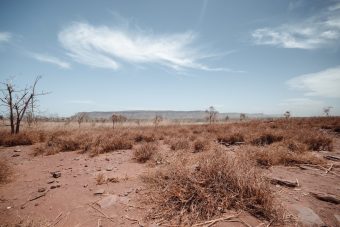
The densely populated Mediterranean basin region is warming more rapidly than global average rates. It is increasingly subject to a range of devastating extreme weather and climate events, which in recent years have caused major loss of life, infrastructure damage, and economic shocks.
Floods, wildfires, and droughts have all hit the headlines in 2023, and there are also major volcanic centers and active seismic zones across the region. Yet there is lack of coordinated preparedness and response mechanisms to natural hazards and extreme events.
A new WMO-led research project, funded by the European Commission’s Horizon Programme, aims to help protect citizens and infrastructure and enhance disaster response mechanisms right across the Europe-Mediterranean-North African region.
The MedEWSa project started this month and will run for three years. With five million euros of funding from Horizon Europe, it will develop a connected system of Multi-Hazard Early Warning Systems (MHEWS) to support first responders and facilitate informed decision-making by governments and civil society organizations. In doing so, it will directly contribute to the United Nations’ Sustainable Development Goals, enhance the European Union’s competitiveness and growth, and protect citizens of the EU and beyond.
More:
- GREENHOUSE GAS CONCENTRATIONS HIT RECORD HIGH. AGAIN.
- INSIDE A RESEARCH CENTRE TRACKING THE FALLOUT FROM THE CLIMATE CRISIS
- HOW TECHNOLOGY CAN MAKE THE CLIMATE CRISIS ACCESSIBLE, UNDENIABLE AND ACTIONABLE
The project was launched on 9-10 November 2023 in Athens, Greece. WMO Chief Scientist, Director of Science and Innovation, and MedEWSa project co-Ordinator, Prof Jürg Luterbacher, said:
“MedEWSa is perfectly aligned, in both its overall mission and schedule, with the 2022 call by United Nations Secretary-General António Guterres to protect everyone on earth with early warning systems (EWS) by the end of 2027. The project will hopefully make a substantial contribution to WMO’s involvement and activities supporting implementation of the #earlywarningsforall Initiative. We are already hard at work with our superb team of partners and look forward to ensuring that all citizens in the region are better warned of, and able to respond to, any extreme events that may occur in the future.”

Key focus
The MedEWSa project emphasizes the importance of research and multi-stakeholder collaboration in enhancing Mediterranean and European countries’ operational EWS capabilities. It aims to enhance collaboration, research, innovation, and the dissemination of knowledge and technologies in support of EU policies addressing global challenges.
Central to MedEWSa is a suite of carefully selected pairs of pilot sites, or “twins”, that highlight discrepancies in coverage and capabilities and that foster collaboration and demonstrate the transferability of MedEWSa’s tools.
The four twins are:
- Greece (Attica) – Ethiopia (National Parks): wildfires and extreme weather events (droughts, wind)
- Italy (Venice) – Egypt (Alexandria / Nile Delta): coastal floods and storm surges
- Slovakia (Kosice) – Georgia (Tbilisi): floods and landslides
- Spain (Catalonia) – Sweden (countrywide): heatwaves, droughts and wildfires.
The main objectives of MedEWSa are: a) Provide multi-hazard information and conduct risk analysis b) Contribute to impact-based forecasting c) Develop a fully integrated impact-based Multi-Hazard Early Warning System d) Use AI-based decision-support solutions to enhance multi-hazard impact prediction e) Develop innovative financial solutions through risk transfer to capital markets, including Insurance-Linked Securities and parametric insurance.
With 30 partners across the region, project members include WMO, the European Centre for Medium Range Weather Forecasts, National Meteorological and Hydrological Services, the African Union, the Red Cross Climate Centre, academia, research institutions, small and medium-sized enterprises, and a broad cohort of civil society, government, private sector and first responder organizations.
Source: WMO



